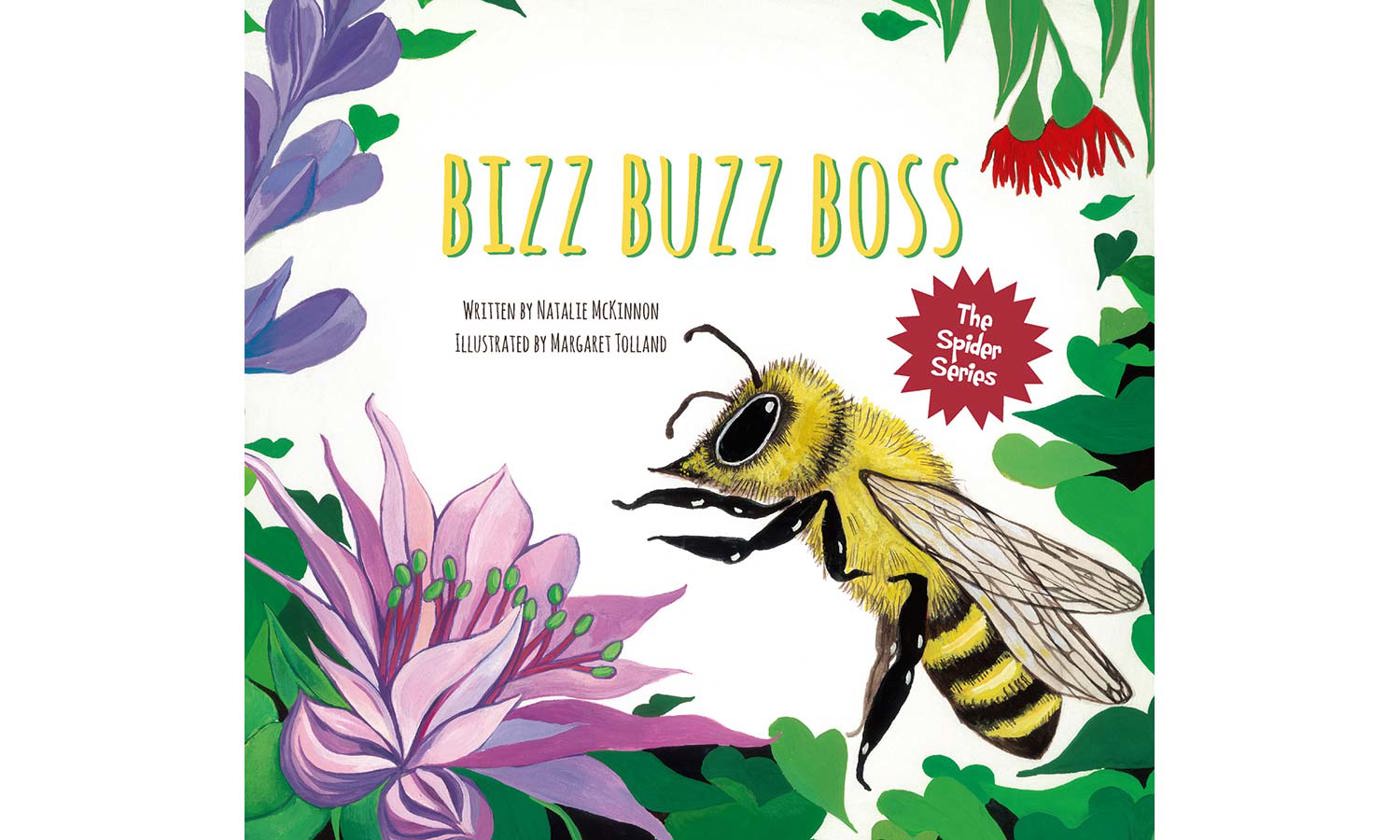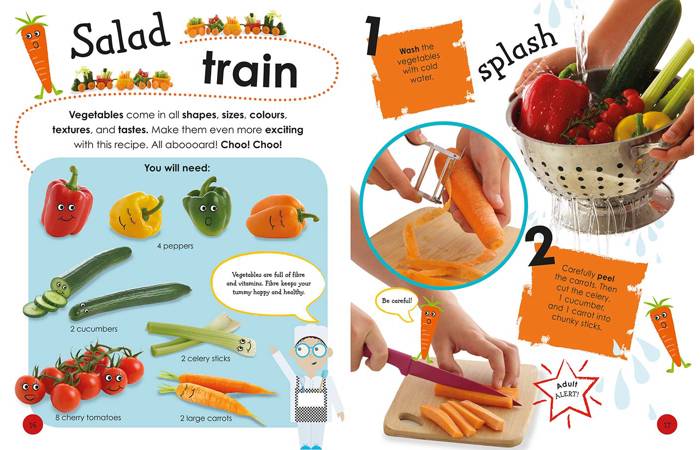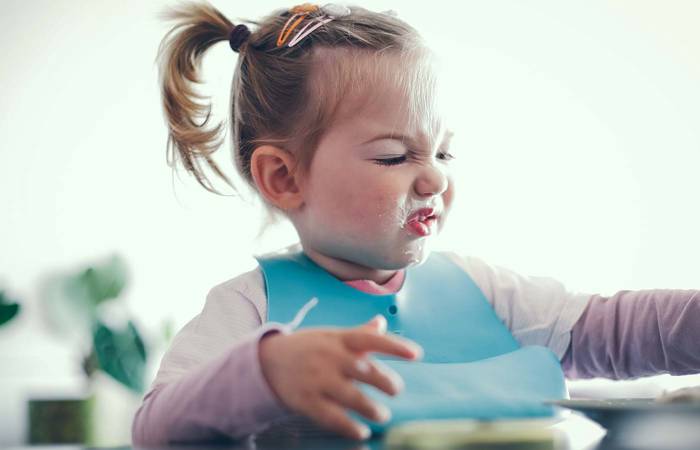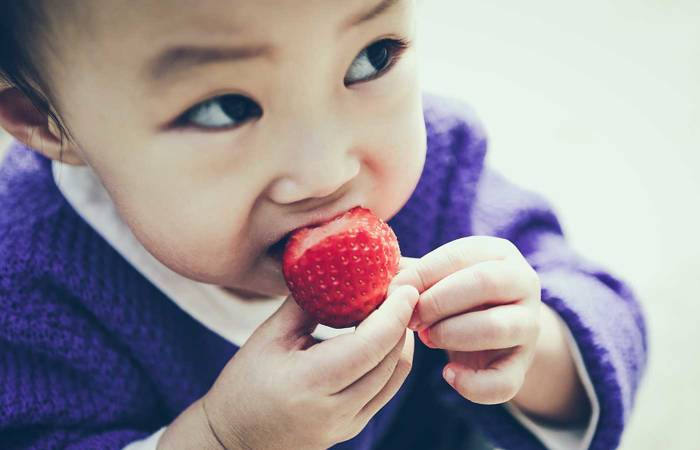Like what you see?
Sign up to receive more free parenting advice.
Thank you for subscribing to our newsletter!
Child Development

Growing up in a suburbia, early childhood educator and children’s book author Natalie McKinnon missed out on the joy of kitchen gardens and chicken runs. Her mission now is to encourage children to understand where real food comes from and develop an understanding of the relationship between their health and the environment.
Natalie has more than 20 years’ experience in preschool and independent schools and with three of her own children has a passion for connecting children with nature.
Based in country Warrandyte outside Melbourne, she creates a suite of gardening workshops for children through her business Spit the Pip and authors books about the role of insects in nature.
The second of her three-part Spider Series Bizz Buzz Boss, due for release in February 2019, continues the adventure of a little spider with the key message that every creature in the garden, no matter how small, plays an important part in sustaining the balance of nature.
In Bizz Buzz Boss, Little Spider lives a peaceful life in a corner of the garden. Every day, she is soothed by the sounds of the other creatures around her. But every day, Bossy Bee arrives to shatter the peace and quiet. Bossy Bee has no time for anyone else. She thinks she is the most important and busiest creature in the garden. But then the others play a trick on her, and she comes to see that the other garden creatures also have useful jobs.
Natalie says the book is about challenging children’s perception of someone else’s behaviour and understanding that everyone has a part to play. In the case of the insects in her book, they all have an integral part to play in balancing nature.
“I chose a spider as the central character as it is a creature familiar to children, however often seen in a negative light. I hope to give children a different perspective.”
Enabling children to connect with the natural world
Natalie says the book series evolved from her children’s Spit the Pip workshops run through schools and preschools.
The Treasure Garden workshop for early learning environments incorporates values defined by the Early Years Learning Framework and enables children to connect, hands on, with the natural world.
The workshop fosters a sense of wonder in the natural treasures which can be found in gardens, with a focus on seeds and germination.
The children are involved in a series of activities, including the use of props and costumes in storytelling to introduce them to concepts of the lifecycle of a plant and natural food production.
After getting hands-on with fruits and vegetables to discover the seeds inside, the children are invited to sow their own seeds to take home to begin their own harvest.
Without hands-on experience we can miss the links in natural cycles. You might be eating healthy food but you miss the links being part of growing the food and eating the food.Natalie McKinnon
Stay up to date with the latest news and articles from First Five Years
Thank you for subscribing to our newsletter!
Natalie says the workshops foster a sense of connectedness for children - with each other, with their families and with the earth.
“Understanding where ‘real food’ comes from, and the ability to grow our own food, is essential to the health of our children and the health of our beautiful planet.
“We all know that kids learn by 'doing', so what better way to show them how easy it is to grow healthy, delicious food, than to get them doing it themselves.
“Being a teacher for so long my experience is storytelling with children and providing language experiences in all different ways and all different learning styles. This led to an interest in children’s books and the types of language and rhythm that can be used to develop learning.
“The books evolved from the Spit the Pip workshops. Within the workshops I’m conscious of children learning in different ways, lots of different experiences, lots of sensory experiences, storytelling, dramatic re-enactment, observation, hands on learning, and the storytelling element to reinforce those same concepts. They’re all part of the approach providing learning for different children in different ways.
“Seed Magic was the first book in The Spider Series. Bizz Buzz Boss is the second and the third one is due in 2020 and will be called A Web for All Seasons.
Linking nutrition with health
Natalie says her own transformation from suburban lifestyle to rural property owner was a significant learning curve, but introducing children to the concept of food production was simply a natural progression.
“I had a very suburban experience as a child. We didn’t grow our own food. It wasn’t something that came naturally. Coming to it as an adult was a bit of a joy really,” she says.
“Discovering and starting to link up nutrition and health and being part of the environment and contributing to the production of food and seeing those things interwoven and essentially part of physical and mental health - it made sense to see a child have those experiences.
“Without hands-on experience we can miss the links in natural cycles. You might be eating healthy food but you miss the links being part of growing the food and eating the food.
“I saw how my children were immersed in that experience it was something that I couldn’t let go of.
“I could see how becoming immersed in nature and growing their own food were so important for children all round. With my experience in education it was like a natural progression and making that experience available to others made sense to me.”
Natalie says that at both the school and preschool workshops, children are encouraged to look at real food and plants.
“We have the real thing there and we encourage children to look at them in different ways, talk about the colour shapes and sizes.
“We encourage them to smell or taste them and often we find that the children are much more prepared to try something they haven’t tried before and might refuse to eat at home which is quite nice.
“I have had a couple of schools request taste testing and it’s interesting to see some kids say ‘yuck’ before they’ve even tried it.
“That’s then an opportunity to talk to them about how that’s okay, but that they might feel differently in a couple of years and letting them know that their tastes might change.
“There’s a lot of storytelling and props and group discussion.
“Children in all of our workshops are encouraged to contribute. There are no wrong answers. It’s about building trust with children and getting them to contribute their ideas.
“The experiences of the children are so varied. Some come from backgrounds where nanna has a farm and some have none at all. We are simply building on their experiences whatever that may be.”






